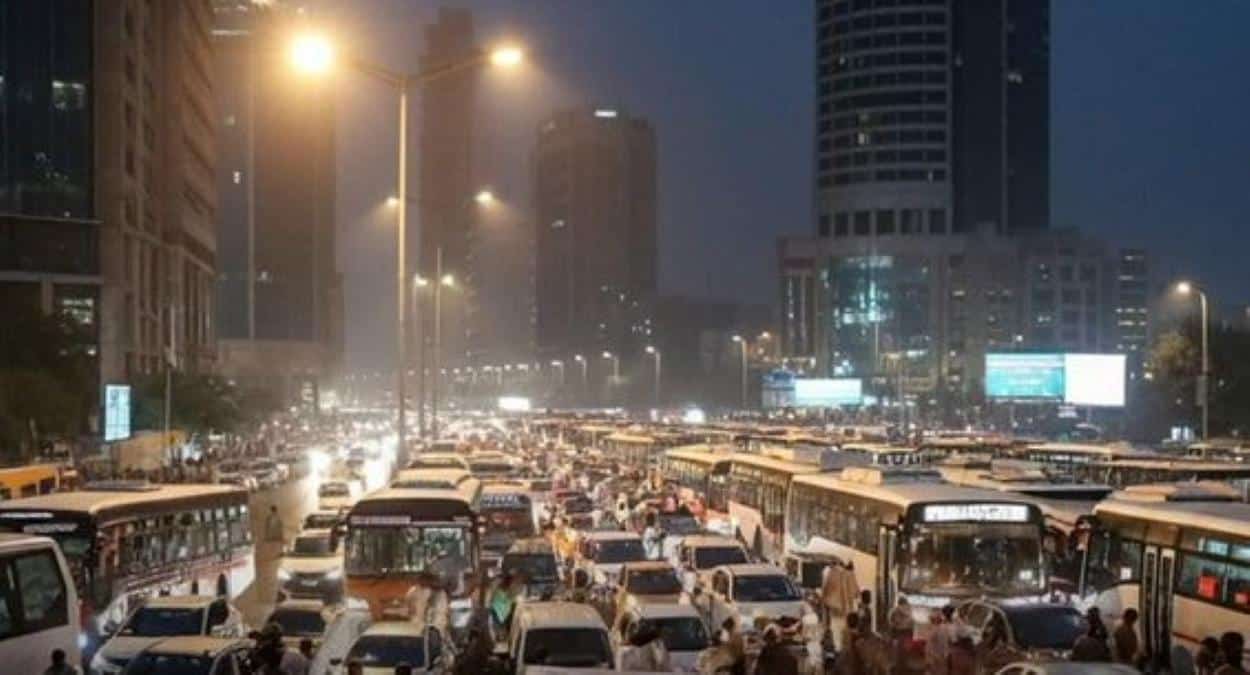Karachi has officially implemented speed limit regulations on Shahrah Faisal, the city’s largest and busiest thoroughfare, following the recent introduction of the e-challan system designed to enhance traffic safety across Sindh’s capital city.
According to DSP (Admin) Kashif Nadeem, the speed restrictions establish different limits for various vehicle categories. Light vehicles, including cars and jeeps, must adhere to a speed limit of 60 kilometres per hour, while motorcycles face the same restriction.
Heavy transportation vehicles, including buses and trucks, must maintain speeds below 30 kilometres per hour on Sharea Faisal. This significant differential acknowledges the greater stopping distances and potential damage associated with heavier vehicles.
Automated camera systems will monitor compliance with these new regulations. Vehicles exceeding the prescribed speed limits will receive electronic traffic challans without requiring physical police intervention.
Read: How to Stop E-Challans After Selling Your Car in Karachi
The Sindh government has recently launched a comprehensive e-challan system to enhance traffic law enforcement. Officials describe the program as essential for protecting citizen safety and property while ensuring consistent application of traffic regulations.
Despite facing criticism from opposition parties and certain segments of the public, the provincial government maintains its commitment to road safety. Senior Minister Sharjeel Inam Memon has emphasised that protecting citizens remains the administration’s highest priority.
The new system replaces traditional manual ticketing with advanced automated technology. Artificial intelligence-integrated CCTV cameras detect various traffic violations, including speeding, red-light infractions, and non-compliance with helmet use.
Read: Karachi’s E-Challan System Issues 3,500 Fines in a Day
Sindh Chief Minister Murad Ali Shah explained that the automated approach eliminates human discretion and potential bias from traffic enforcement. This technological solution aims to create fairer and more accountable road regulation.






